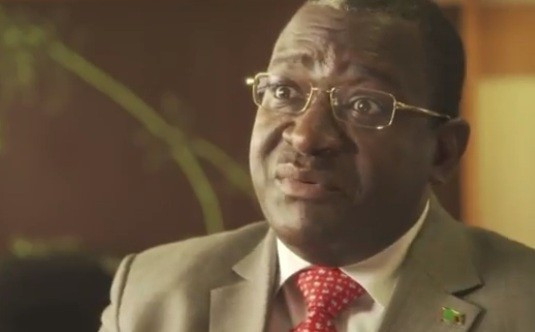Stealing Africa: How Copper Industry Leaves Zambia in Poverty

Zambia has relied on the mining industry since the 1930s and it is the country's economic backbone.
But privatisation of the mining industry in 2001 has denied much of the profit from the country's vast reserves of natural resources to the people, according to a report.
Wylbur Simuusa, minister of mines, tells BBC 4 documentary Stealing Africa: "As a country, as a nation, God has blessed us with such an abundant natural resource. The paradox is that Zambia ranks among the 20 poorest countries.
"We are wealthy yet we are poor."
In the film, which forms part of the Why Poverty? season, filmmaker Christoffer Guldbrandsen looks at how Zambia has coped since mining was fully privatised over 10 years ago.
Guldbrandsen looks at the way the tax system works so that multinationals escape paying tax to Zambia.
In the documentary, the filmmakers note that if Zambia received the same price that Swizerland got for its copper exports, the African country's GDP would almost double.
In Rushchlikon, a village in Switzerland, there is a low tax rate and a number of extremely wealthy residents - thanks largely to the contribution from Ivan Glasenberg, the chief executive of Glencore, which owns the Mopani Copper Mines.
Last year, Glencore became the focus of media attention over allegations it was dodging taxes in Zambia.
Below poverty line
While two-thirds of people in Zambia live below the poverty line, mining companies make huge profits. A leaked Grant Thorton audit report on Glencore's Mopani mine accused the company of selling copper to Swizerland at below market prices.
The auditors also found the operational costs had increased substantially. These artificial inflation costs, combined with undervaluing the copper, allowed Glencore to report overall losses, therefore avoid paying corporation taxes in Zambia.
Savior Mwambwa, executive director of the Centre for Trade Policy and Development, Zambia, is calling for his government to reclaim the $200m in outstanding tax from the mining companies.
Guldbrandsen asks how, with having the third largest copper reserves in the world, can 60 percent of the people in Zambia live on less than $1 per day, while 80 percent remain unemployed.
In an interview with the Guardian, he said: "Zambia desperately needed foreign investment to develop their copper mines, but privatising the mines and selling them indiscriminately, with such a lack of regulation, was not the best way to go. It is almost ironic that they sold the Mopani copper mine, which I feature in the film, to a consortium led by Glencore, whose founder had to flee the US in what was at the time the biggest ever tax-evasion case in US history.
"Those are the guys they're selling their family silver to. It questions the validity of the idea that the free hand of the market will sort it out, because it's not always free and it's not always playing by the book."
Stealing Africa is on BBC 4 at 10pm tonight (Monday).
© Copyright IBTimes 2025. All rights reserved.






















